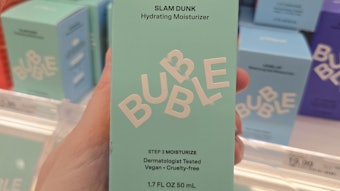Human skin, more specifically facial skin, periodically needs a deep cleansing to remove not only the oily particles resulting from secretions, but also dead skin caused by desquamation of the epidermis.1 Cleansers are designed to remove dirt, sweat, sebum and oils from the skin, which helps to promote normal exfoliation and thereby rejuvenates the skin.2 However, the use of cleansers can lead to a reduction in the level of the natural moisturizing factor (NMF) of skin.3 Factors that reduce the water content can lead to changes in skin´s viscoelasticity.4 Further, harsh cleansers such as soaps can induce dryness, leading to scaly and rough skin.5 These effects may be much more severe during winter months when the air is cold and dry.
Visible skin dryness has been found to correlate positively with a lack of surface hydration.2 Minimizing damage caused by cleansers is therefore the first step toward cleansing without compromise. The second step is compensating for the level of damage caused by cleansers by providing moisturizing benefits during washing.2 By moisturizing skin, optimal levels of hydration and plasticization are maintained, allowing skin to retain its normal viscoelasticity.6









